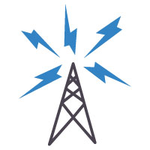
Electronics and Communication Engineering Course Details - Fees, Subjects, Syllabus, Duration, Eligibility, Career Scope
Degrees offered: B.E /B.Tech, Diploma, M.E /M.Tech., Ph.D, Dual Degree
What is Electronics and Communication Engineering
Electronics and Communication Engineering (ECE) is a dynamic branch of engineering that focuses on designing, developing, and maintaining electronic devices and communication systems. The course combines fundamentals of electronics, signal processing, and telecommunications, preparing students for careers in networking, embedded systems, and electronic device design across industries.
ECE courses teach digital and analogue electronics, communication systems, microprocessors, and VLSI design, with practical learning through labs and projects. For undergraduate courses, candidates must complete 10+2 with at least 50 per cent marks. Postgraduate courses require a related Bachelor’s degree, with admission through entrance exams or merit.
Graduates in ECE can explore careers in telecommunications, IT, electronics manufacturing, and research and development. The field offers opportunities in emerging sectors like IoT, wireless communication, and semiconductor industries, allowing students to work on innovative projects and grow in both technical and managerial roles.
Electronics and Communication Engineering: Highlights
ECE is a branch of engineering that trains students in designing and maintaining electronic devices, communication systems, and embedded technologies. The course combines theory with practical projects, preparing graduates for roles in IT, telecom, and research sectors while developing technical knowledge and analytical skills. Below are the key highlights of the course.
Particulars | Values |
|---|---|
Branch Name | Electronics and Communication Engineering (ECE) |
Degree | |
Duration | UG: 4 years PG: 2 years |
Eligibility Criteria | UG: 10+2 in Science Stream PG: Bachelor’s Degree in Electronics and Communication Engineering or related discipline |
Admission Process | Admission Entrance Exam/ Direct Admission |
Top Entrance Exams | JEE Main, JEE Advanced, BITSAT, VITEEE and GATE |
Average Course Fees | Rs. 46,000 to Rs. 26 Lakhs |
Career Options | Electronics Engineer, Systems Engineer, Hardware Engineer, Programmer Analyst |
Average Salary | Rs. 4.3 LPA (Electronics Engineer) |
Recruiting Companies | Tata Elxsi, Bosch, IBM, Infosys, Intel, Samsung, Hewlett Packard, ISRO |
Specialisation or Similar Ones
Electronics and Communication Engineering offers various specialisations that allow students to develop expertise in specific technical domains. These areas help learners gain a deeper understanding of electronic devices, communication systems, and signal processing technologies. Mentioned below are some of the popular specialisations or similar fields in ECE:
Embedded Systems | VLSI Design |
Communication Systems | Digital Signal Processing |
Wireless Networks | |
Optical Communication |
Top Private Electronics and Communication Engineering Colleges in India
Private institutes offering Electronics and Communication Engineering are known for their advanced infrastructure, modern labs, and strong placement support. Though the fees are usually higher than government colleges, they provide excellent academic and research opportunities. Mentioned below are some of the top private colleges offering ECE courses in India:
| Top Colleges | NIRF Ranking | Fees |
|---|---|---|
11 | Rs. 25.26 Lakhs | |
14 | Rs. 11 Lakhs | |
16 | Rs. 7.80 Lakhs | |
22 | Rs. 10.60 Lakhs | |
29 | Rs. 21.90 Lakhs | |
Kalasalingam Academy of Research and Education, Virudhunagar | 33 | Rs. 6.59 Lakhs |
35 | Rs. 10.60 Lakhs | |
36 | Rs. 18.35 Lakhs | |
38 | Rs. 18 Lakhs | |
40 | Rs. 7.53 Lakhs |
Note: The fee structure provided above can be for any particular Electronics and Communication Engineering (Diploma/ Degree/PGD).
Top Government Electronics and Communication Engineering Colleges in India
Government institutes offering Electronics and Communication Engineering in India are known for their affordable fees and high academic standards. These colleges provide quality education, experienced faculty, and strong research facilities. Mentioned below are some of the top government institutes offering ECE courses in India, along with their NIRF rank and fees:
| Top Colleges | NIRF Ranking | Fees |
|---|---|---|
1 | Rs. 1.52 Lakhs | |
2 | Rs. 1.02 Lakhs | |
5 | Rs. 46,750 | |
6 | Rs. 8.90 Lakhs | |
7 | Rs. 1.23 Lakhs | |
8 | Rs. 8.91 Lakhs | |
9 | Rs. 1.08 Lakhs | |
12 | Rs. 64,500 | |
13 | Rs. 6.30 Lakhs | |
15 | Rs. 8.96 Lakhs |
Eligibility Criteria (UG & PG) of Electronics and Communication Engineering
Different institutions might have different eligibility requirements to be met by the candidates. For an undergraduate course, the candidates are required to complete their 10+2 with a minimum 50 per cent aggregate score. For a postgraduate course, the candidates are required to have a Bachelor’s degree in the field of Electronics and Communication Engineering:
ECE Eligibility Criteria for UG Courses
There are no fixed eligibility criteria for undergraduate courses; they may vary from one institution to another. Mentioned below are the eligibility criteria for the undergraduate courses in Electronics and Communication Engineering.
- Candidates must complete their 10+2 education with a valid aggregate score, which is generally 50 per cent.
- They must also clear the entrance exams specified by the desired institute.
- Students must have a Science stream in their 10+2 with Physics, Chemistry, and Mathematics as compulsory subjects.
- The candidates are advised to check the eligibility criteria in the programme brochure provided by the institute before applying for admission.
Top Entrance Exams for UG Course
There are many popular entrance exams conducted for admission to Electronics and Communication Engineering courses. In the table below, we have mentioned some of the top entrance exams:
| Exam Name | Level | Conducting body | Exam Schedule |
|---|---|---|---|
National | NTA | ||
National | IIT Bombay | ||
State | BITS Pilani | ||
State | BITS | ||
State | VIT |
ECE Eligibility Criteria for PG Courses
The eligibility criteria for the postgraduate course in the field of Electronics and Communication Engineering depend on the institute. Students must have a Bachelor’s degree in a relevant discipline to be eligible for admission. Candidates can check the eligibility criteria on the official website or the programme brochure issued by the desired institute.
- Candidates must have passed B.Tech or B.E. in Electronics and Communication Engineering or a relevant branch from a recognised institute.
- They must score at least 60 per cent aggregate score to be eligible for admission.
- They must appear for the GATE entrance exam for admission to the top engineering colleges in India.
- Reserved categories are also provided with relaxation in the qualifying percentage.
Top Entrance Exams for PG Courses
There are many entrance tests at the postgraduate level in the field of Engineering to get admission to different IITs, NITs, and other colleges. Students can find the relevant information for the entrance examinations in the table below:
| Exam Name | Level | Conducting body | Exam Schedule |
|---|---|---|---|
National | IITs | ||
State | Anna University |
College Predictors VIEW ALL
Scope of Electronics and Communication Engineering in India and Abroad
Electronics and Communication Engineering (ECE) offers vast career opportunities across various sectors such as telecommunications, IT, consumer electronics, and research and development. Graduates can work in hardware design, embedded systems, network management, and signal processing. The sector is continually growing due to technological advancements and increasing digitalisation.
The demand for ECE professionals is increasing with the rollout of 5G networks, IoT devices, and smart electronic systems. According to a NASSCOM report, the Indian technology sector revenue is projected to reach around USD 245 billion (approximately Rs. 20,700 crore) in FY2023, reflecting an 8.4 per cent growth, indicating strong career opportunities for graduates.
Course Fees Electronics and Communication Engineering
| Minimum Fees | Maximum Fees | |||
|---|---|---|---|---|
| Private | Government | Private | Government | |
| UG | ||||
| PG | ||||
| DOCTORAL | ||||
| DIPLOMA | ||||
Course Subjects
The Electronics and Communication Engineering syllabus at both undergraduate and postgraduate levels focuses on core areas such as electronics, communication systems, and digital technologies. Students gain practical and theoretical knowledge through labs, projects, and research. Below are the syllabus details for both the UG and PG courses in ECE.
Electronics and Communication Engineering Syllabus for UG Course
The Electronics and Communication Engineering syllabus at the undergraduate level varies across institutions and degree programmes. Core subjects usually include Mechanics, Electrical Technology, Physics Laboratory, and Introduction to Programming and Data Structures. In the table below, we have provided the B.Tech ECE syllabus of IIT Bhubaneswar.
Semester 1 | Semester 2 |
Mathematics-I | Mathematics-II |
Physics/ Chemistry | Chemistry/ Physics |
Mechanics/ English for Communication or Learning English | English for Communication or Learning English/ Mechanics |
Electrical Technology/ Introduction to Programming and Data Structures | Introduction to Programming and Data Structures/ Electrical Technology |
Introduction to Manufacturing Processes/ Engineering Drawing and Graphics | Engineering Drawing and Graphics/ Introduction to Manufacturing Processes |
Physics Laboratory/ Chemistry Laboratory | Chemistry Laboratory/ Physics Laboratory |
Electrical Technology Lab/ Programming and Data Structures Lab | Programming and Data Structures Lab/ Electrical Technology Lab |
Extra Academic Activity–I | Extra Academic Activity–II |
Semester 3 | Semester 4 |
Breadth 1 | Environmental Science, Technology, and Management |
Mathematics | Network Theory |
Introduction to Materials Science and Engineering | Digital Electronic Circuits |
Introduction to Bioscience and Technology | Analog Communication |
Introduction to Electronics | Digital Electronics Circuit Lab |
Signal and Systems | Analogue Communication Lab |
Introduction to Electronics Lab | - |
Signal and Systems Lab | - |
Project Seminar | - |
Semester 5 | Semester 6 |
Electromagnetic Waves and Radiating Systems | Digital Signal Processing |
Digital Communication | Control Systems |
Microprocessor and Microcontroller | VLSI Design |
Digital Communication Lab | Digital Signal Processing Lab |
Microprocessor and Microcontroller Lab | Control Systems Lab |
- | VLSI Lab |
Semester 7 | Semester 8 |
Communication Networks and Switching | B.Tech Project II |
RF and Microwave Engineering | RF and Microwave Engineering Lab |
Electronic System Design Lab | Electives |
Industrial Training Defence | - |
B.Tech Project I | - |
Electronics and Communication Engineering Syllabus for PG Courses
The postgraduate syllabus for Electronics and Communication Engineering generally includes advanced theoretical subjects in the initial semesters and research-based work in the later stages. The exact syllabus may vary depending on the university or institute. In the table below, we have provided the M.Tech Electronics and Communication Engineering syllabus of IIT Bhubaneswar.
Semester 1 | Semester 2 |
Advanced Communication Engineering | Information Theory and Coding |
Image and Video Processing | Advanced Digital Signal Processing |
Elective I | Elective IV |
Elective II | Elective V |
Elective III | Elective VI |
Advanced Communication and Radiating System Laboratory | Advanced Digital Signal Processing Laboratory |
Design and Simulation Laboratory | Seminar-II |
Seminar-I | - |
Semester 3 | Semester 4 |
Thesis Part I | Thesis Part II |
Research Review Paper I | Research Review Paper II |
Careers in Electronics and Communication Engineering
Electronics and Communication Engineering graduates have various career opportunities across multiple sectors, including technology, telecommunications, and manufacturing. They can explore roles in design, development, analysis, and project management. Mentioned in the table below are some of the most sought-after career options in the field of ECE:
| Job Profiles | Description |
|---|---|
Electronics Engineers design, develop, and maintain electronic systems and circuits. They work on projects involving consumer electronics, industrial equipment, and communication devices. | |
Systems Engineer | Systems Engineers plan, integrate, and manage complex systems in organisations. They ensure all components function efficiently and meet technical requirements. |
Hardware Engineer | Hardware Engineers design, test, and improve computer hardware and electronic components. They focus on building reliable and high-performance devices for various industries. |
Programmer Analyst | Programmer Analysts write, test, and maintain software applications. They analyse system requirements and provide technical solutions for business processes. |
Design Engineers create and develop innovative products and systems. They work on conceptualising designs and converting them into practical solutions. | |
Telecom Engineers plan, implement, and maintain telecommunication systems. They handle network infrastructure, signal transmission, and communication technology projects. |
Upcoming trends
The Electronics and Communication Engineering (ECE) field is continuously evolving due to technological advancements. These innovations are shaping the industry, creating new career opportunities and smarter solutions. Some of the current and upcoming trends in ECE include:
- 5G and Next-Generation Communication Networks
- Internet of Things (IoT)
- Robotics and Automation
- Artificial Intelligence (AI) and Machine Learning
- Embedded Systems and Mechatronics
- VLSI Design and Nanoelectronics
- Smart Grids and Renewable Energy Integration
- Cyber-Physical Systems and Industry 4.0
Certifications for Electronics and Communication Engineering
 Certificate in Micro Controller Programming
Certificate in Micro Controller Programming Certificate in Micro Processor Application
Certificate in Micro Processor Application Certification in Based Transmission System
Certification in Based Transmission System Certification in Embeded System
Certification in Embeded System Certification in PLC Designing
Certification in PLC Designing Certification in Robotics
Certification in Robotics Cisco Certified Network Associate
Cisco Certified Network Associate Java Certification
Java Certification MatLab
MatLab Simulink
SimulinkJob Profiles and Top Recruiters
 Infosys Limited
Infosys Limited Samsung
Samsung Wipro Limited
Wipro Limited Bosch Limited
Bosch Limited IBM India Private Limited
IBM India Private LimitedElectronics and Communication Engineering graduates are hired across various sectors, including telecommunications, IT, manufacturing, and research. The field offers roles in design, testing, and innovation for both public and private organisations. Below are some of the top recruiters that hire professionals in Electronics and Communication Engineering.
Top Recruiters
- Tata Elxsi
- Bosch
- IBM
- Infosys
- Intel
- Samsung
- Hewlett-Packard
- ISRO
Average Salary
The average salary for Electronics and Communication Engineering graduates varies depending on the candidate’s skills, experience, job profile, and the company’s location. Different roles offer different pay scales, reflecting the responsibilities and expertise required. Below are some average salaries in the field of ECE:
| Job Profiles | Average Salary (LPA) |
|---|---|
Electronics Engineer | Rs. 4.3 LPA |
Systems Engineer | Rs. 5.8 LPA |
Hardware Engineer | Rs. 8.6 LPA |
Programmer Analyst | Rs. 5.6 LPA |
Design Engineer | Rs. 5.4 LPA |
Telecom Engineer | Rs. 4.1 LPA |
Source: AmbitionBox
Required Skillset for Electronics and Communication Engineering
Students pursuing a degree in Electronics and Communication Engineering (ECE) need to develop a mix of technical and soft skills to succeed. Along with understanding core subjects like circuits, signals, and communication systems, they must cultivate problem-solving, teamwork, and analytical abilities. Below are some key skills.
- Good Communication
- Teamwork and Collaboration
- Time Management
- Analytical Thinking and Problem-Solving
- Critical Thinking
- Technical Knowledge in Electronics and Circuits
- Adaptability to Emerging Technologies
- Attention to Detail
Course Curriculum for Electronics and Communication Engineering
The ECE curriculum is designed to provide a strong foundation in electronics, communication systems, and signal processing. Students study subjects such as Mathematics, Physics, Electrical Technology, Digital Electronics, Analogue Communication, and Microprocessors. Practical labs and workshops complement theoretical learning, helping students develop hands-on skills and technical expertise.
Advanced topics in the ECE curriculum include VLSI Design, Digital Signal Processing, Control Systems, Wireless Communication, and Embedded Systems. Students also undertake projects, seminars, and industrial training to apply knowledge in real-world scenarios. Electives in AI, IoT, and Robotics allow specialisation, preparing graduates for diverse career opportunities in electronics and communication sectors.
Popular Electronics and Communication Engineering Entrance Exams in India
JEE Main
Application Process: 01 Feb, 2026 - 25 Feb, 2026
GATE
Exam Date: 07 Feb, 2026 - 08 Feb, 2026
JEE Advanced
Application Process: 06 Apr, 2026 - 02 May, 2026
COMEDK UGET
Application Process: 03 Feb, 2026 - 16 Mar, 2026
MAT
Application Process: 23 Feb, 2026
Popular Electronics and Communication Engineering Colleges in India VIEW ALL
Frequently Asked Questions (FAQs)
Question: What are the average course fees of Electronics and Communication engineering course?
Answer :
The average course fee after completion of an Electronics and Communication Engineering depends on the level of education and the type of institute. Generally, the average fees of ECE courses range from Rs. 60,000 to Rs. 26 Lakhs.
Question: What are the top entrance exams in the field of ECE?
Answer :
The entrance exams depend on the level of education. Some of the top entrance exams in the field of ECE are JEE Main, JEE Advanced, BITSAT, SRMJEEM, and VITEEE.
Question: What is the scope of ECE?
Answer :
Electronics and Communication Engineering (ECE) offers a wide range of opportunities. Graduates can work in sectors like telecommunications, IT, and hardware. They can design, develop, and test electronic equipment and systems. ECE professionals are also in demand in the defence, space research, and robotics industries.
Question: What is the maximum salary of ECE?
Answer :
The salary after completion of either undergraduate or postgraduate courses in ECE depends on the individual's capabilities, the location of the company, and the experience of the candidate. The average salary of an Electronics Engineer, according to AmbitionBox, is Rs. 4.3 LPA.
Question: How many years is ECE Course?
Answer :
The Electronics and Communication Engineering course depends on the level of education. Typically, an undergraduate course in ECE lasts for 4 years, while a postgraduate course lasts for 2 years.
Question: I am confused between CSE and ECE. On what basis should I decide my branch?
Answer :
Computer science engineering (CSE) is all about coding and programming. ECE has a blend of physics, electrical components, electronics, and programming. The deciding factor should primarily be your inclination toward either physics or programming.
Question: How tough is it to crack JEE Main and Advanced?
Answer :
JEE is one of the toughest exams that is conducted in the country. The JEE Main is of 3 hours and usually 360 marks. The total marks keep changing, but the time duration remains the same. JEE Advanced has 2 papers over two different sittings of 3 hours each.
Question: What are some of the best colleges for pursuing B. Tech. In Electronics and Communication Engineering (ECE)?
Answer :
IITs are one of the best institutes for completing your Bachelor's and Master’s degrees. All IITs (Mumbai, Delhi, Roorkee, Kharagpur, Kanpur, Madras, and the like) offer ECE as a branch in their undergraduate and postgraduate courses.
Questions related to Electronics and Communication Engineering
i completed my diploma Electronic & Telecommunication Am i eligible to NATA entarance exam...
Hi dear candidate,
The Council of Architecture (CoA) needs a 10+2 and a diploma with mathematics subject being compulsory along with at least 45% overall aggregate marks. If you fulfil these conditions, then you are surely eligible for NATA entrance exam.
Know more in detail at:
Hello , Im EC student and i wrote EC paper in PGCET 2025 exam , so can i get Data Science cource in any of college under KEA admission process , will Data science course will be avilable in option entry as im EC student ?
Yes, it is possible. In PGCET, branches like CSE, ISE, and related specializations (like AI, ML, Data Science) are offered during counselling. If you are from EC background, you are eligible to opt for CSE/IT/Data Science branches in M.Tech through KEA. However, keep in mind that the cut-off for Data
how is ece at pes ec campus. shoud i wait for 2nd round counselling for cse . but i cant get tier 1 college
ECE at PES EC campus is considered good with decent placements, especially in core electronics as well as software roles since many students end up in IT companies too. If you are mainly interested in coding and want CSE, then waiting for 2nd round counselling can be an option, but
I want to become astronaut and also pursue an MS abroad. My question is: According to my goal ,which branch should I choose -EC in pes ec or Al and ML in jss bengalpore
Hello Aspirant,
If you want to be an astronaut and want to do an MS abroad, it is better to focus on a stream that has technical foundation and research opportunities. Here is your option:
- ECE at PES University has good foundation in electronics, communication and embedded systems - all
i got ec branch in pes university bengalore. should i choose this college or go for tier 2 college for cse
First of all, congrats on getting into PES University, which is one of the most reputed private universities in South India. Now about your dilemma , EC at PES vs CSE in a Tier 2 college.
PES has great faculty, strong placements, and top companies regularly recruit from there. Even







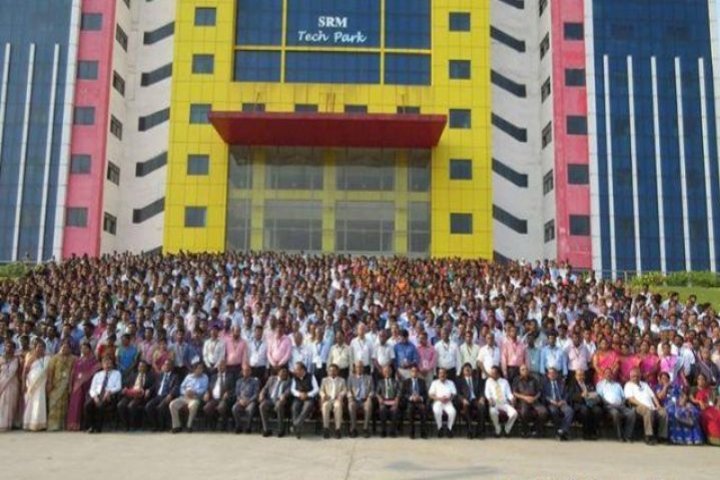

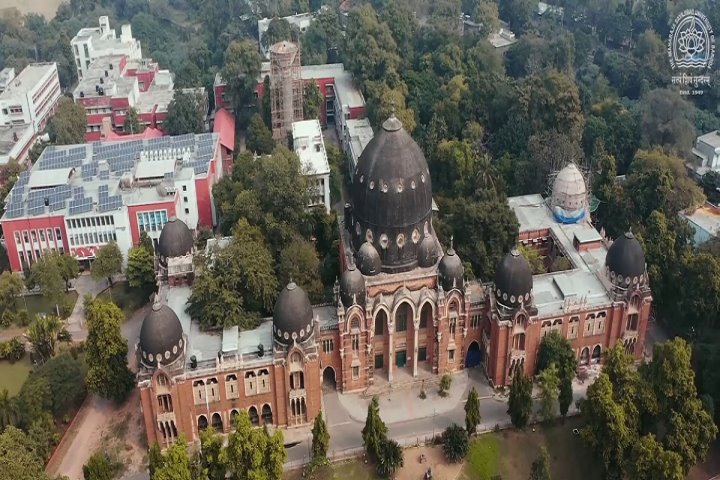
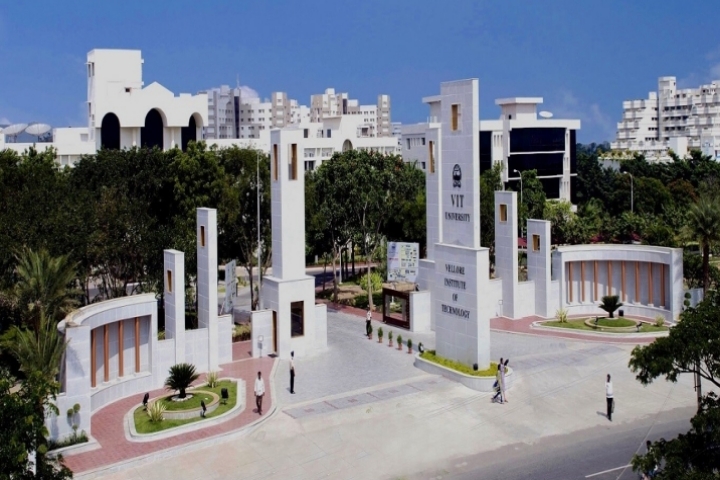

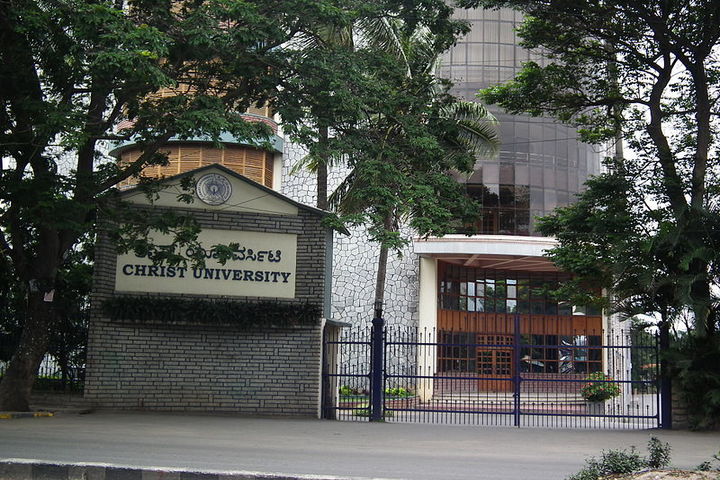


 Answer later
Answer later










